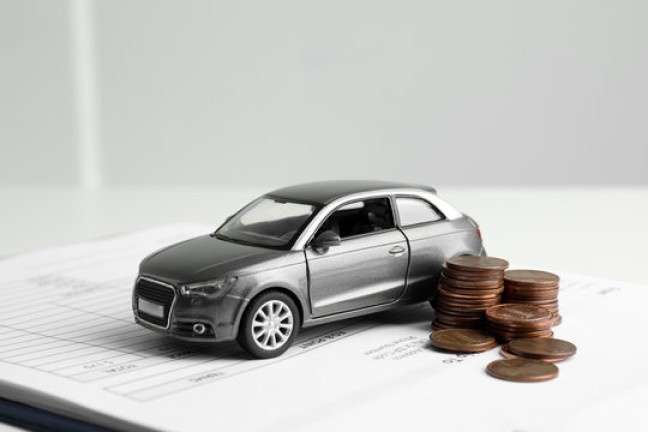When I first started researching how to finance salvage cars, I quickly realized that it’s a unique niche in the world of car loans. Salvage cars are vehicles that have been declared a total loss by an insurance company, typically due to an accident, theft, or natural disaster. While these cars may seem risky to many, they often offer an affordable way for individuals to own a vehicle, especially if they’re able to repair it themselves. In this article, I will guide you through everything you need to know about financing salvage cars through banks, including some of the best banks to approach, what terms you can expect, and the pros and cons of these types of loans.
Table of Contents
What Are Salvage Cars?
Before diving into the specifics of financing, let’s first define what salvage cars are. A salvage car is a vehicle that has sustained damage to the point where the insurance company considers it a total loss. This usually happens when the cost of repairs exceeds a certain percentage of the car’s value. However, despite being deemed a “total loss,” these cars can often be repaired and restored to a drivable condition.
It’s essential to understand that salvage cars can be a great option for budget-conscious buyers or DIY enthusiasts who want to take on the repair work themselves. However, getting financing for these cars can be a bit tricky. Not all financial institutions are willing to provide loans for salvage cars because of the inherent risks. But there are banks and lenders that specialize in financing salvage cars, so let’s explore those options.
Banks That Finance Salvage Cars
Not all banks are open to financing salvage cars, but some are. The key to getting a loan for a salvage car is finding a lender that’s willing to consider the car’s value and the buyer’s ability to repair it. I’ve researched a few banks and lenders that are known to finance salvage cars. Below, I’ll go through some of the best options and their specific loan terms.
1. LightStream (A Division of SunTrust Bank)
LightStream is one of the leading online lenders that specializes in personal loans, including auto loans for salvage cars. I find LightStream’s application process relatively straightforward, and they offer competitive rates.
Key Features:
- Loan Amount: $5,000 to $100,000
- Term: 24 to 84 months
- APR: 4.49% – 19.99% (depending on your credit score)
- Funding Time: Same-day or next-day funding
- Credit Requirements: Good to excellent credit (usually 670 or higher)
- Pros: Quick funding, no fees, competitive rates for borrowers with good credit
- Cons: Limited to good credit borrowers, high rates for those with poor credit
LightStream does not require a down payment for auto loans, and it allows borrowers to finance salvage cars if the car is in good condition and has a reasonable chance of being restored.
2. Capital One Auto Finance
Capital One offers auto loans for both new and used cars, and they are one of the banks that finance salvage vehicles. Although their rates and terms can vary, Capital One is a reputable lender and a solid option for financing a salvage car.
Key Features:
- Loan Amount: Varies depending on the value of the car
- Term: Up to 72 months
- APR: 3.99% – 24.99%
- Credit Requirements: Fair to excellent credit (usually 620 or higher)
- Pros: Flexible loan amounts, fast online application, low rates for good credit borrowers
- Cons: Higher rates for those with poor credit, limited options for cars older than 10 years
One thing I appreciate about Capital One is that they allow financing for vehicles that are declared salvage as long as the vehicle can be repaired and has the potential to be driven again.
3. Wells Fargo Auto Loans
Wells Fargo offers auto loans for both new and used cars, and they are willing to finance salvage cars in certain situations. They tend to be more conservative with their loan terms for salvage vehicles, but they still offer competitive rates.
Key Features:
- Loan Amount: Varies depending on the vehicle and the borrower’s creditworthiness
- Term: 36 to 72 months
- APR: 3.49% – 17.49%
- Credit Requirements: Fair to excellent credit (usually 650 or higher)
- Pros: Trusted name in banking, competitive rates, fast online application process
- Cons: Some restrictions on the age and condition of the salvage vehicle, higher rates for low-credit borrowers
Wells Fargo requires the car to have a clean title and be in good condition, meaning that it must be repairable. They also don’t typically offer loans for cars that are more than 15 years old.
4. RoadLoans
RoadLoans is an online lender that offers auto loans for both new and used vehicles, including salvage cars. They have a reputation for working with buyers who have less-than-perfect credit, making them an excellent option for those who may not qualify for traditional bank financing.
Key Features:
- Loan Amount: $5,000 to $40,000
- Term: 36 to 72 months
- APR: 8.99% – 24.99%
- Credit Requirements: Poor to excellent credit
- Pros: Accepts a wide range of credit scores, easy online application
- Cons: Higher rates for those with bad credit, less flexible loan terms
RoadLoans doesn’t have the strict vehicle age limits that other banks might impose, making them a good choice if you’re looking to finance a salvage car that’s a bit older.
5. OneMain Financial
OneMain Financial offers personal loans, and they are known for being more lenient than some other banks when it comes to financing salvage cars. They are willing to work with borrowers who have poor credit and have a flexible approach to auto loans.
Key Features:
- Loan Amount: $1,500 to $20,000
- Term: 24 to 60 months
- APR: 18.00% – 35.99%
- Credit Requirements: Poor to excellent credit (down to 550)
- Pros: Flexible terms, acceptance of bad credit, physical locations for in-person assistance
- Cons: High APR, limited loan amounts
OneMain Financial’s rates can be high, but they are known for their flexibility and willingness to work with customers with bad credit, which can be helpful if you’re buying a salvage car.
How to Finance a Salvage Car
When I first decided to finance a salvage car, I learned that there are several steps I needed to follow to ensure a smooth process. Here’s what you should do if you’re considering financing a salvage car:
Step 1: Determine the Vehicle’s Value
Before applying for a loan, it’s essential to have the car evaluated to determine its current market value. This is because the loan amount will likely be based on the car’s worth. You can use online resources like Kelley Blue Book or Edmunds to get an estimate of the vehicle’s value, but getting a professional appraisal is often the best route.
Step 2: Check Your Credit
Most banks and lenders that finance salvage cars will check your credit score as part of the application process. While a higher credit score will result in better loan terms, many lenders are willing to work with borrowers with lower credit scores. However, be prepared for higher interest rates if your score is below average.
Step 3: Prepare for a Down Payment
For salvage car loans, I found that down payments are often required. A down payment helps reduce the risk for the lender and can also increase your chances of approval. Typically, you might need to put down 10% to 20% of the car’s value, but this can vary depending on the lender.
Step 4: Get Pre-Approved
Before visiting a dealership or seller, I recommend getting pre-approved for a loan. Pre-approval gives you a clear idea of how much you can borrow and what your monthly payments will be. It also shows the seller that you’re a serious buyer.
Step 5: Shop for Your Salvage Car
Once you’ve secured financing, it’s time to find the right salvage car for you. Make sure to have the car inspected thoroughly to ensure that the repairs required are within your capabilities or budget. I recommend working with a trusted mechanic who can give you a detailed evaluation of the car’s condition.
Step 6: Finalize the Loan and Purchase
After finding the salvage car you want to buy, you can finalize your loan and complete the purchase. Make sure to carefully review the terms of the loan agreement, including the interest rate, repayment schedule, and any fees.
Conclusion
Financing a salvage car can be a great way to save money, especially if you’re willing to take on the repairs yourself. However, it’s important to understand that not all banks are willing to finance salvage cars, and those that do may have specific requirements or higher interest rates. By choosing the right lender, such as LightStream, Capital One, Wells Fargo, RoadLoans, or OneMain Financial, you can secure a loan that works for you. Always shop around, compare rates, and make sure the car is worth the investment. With a bit of research and preparation, you can drive away in a salvage car with a loan that fits your budget.





